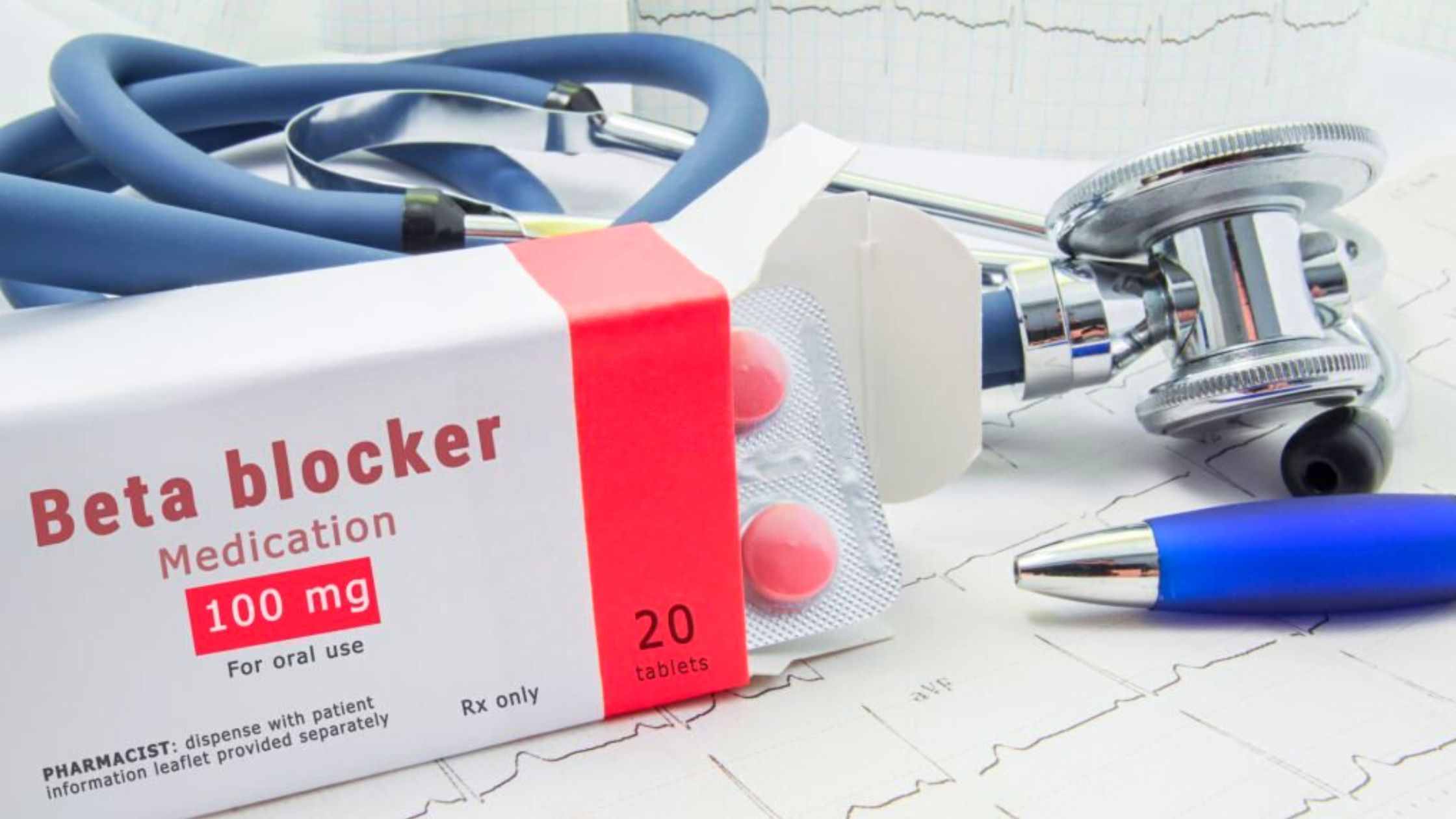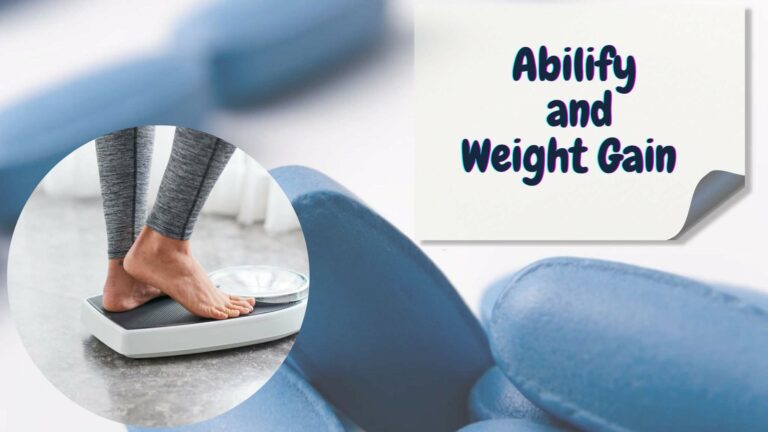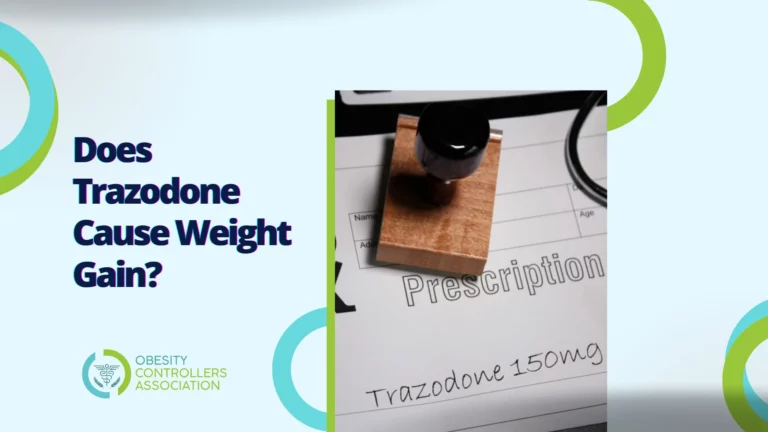Does Metoprolol Cause Weight Gain?

We all have our share of concerns before taking medications. Some medicines come with side effects even though doctors prescribe them. ‘Metoprolol’ is a medicine often prescribed by doctors to patients suffering from hypertension. Does this Metoprolol have some side effects, especially weight gain? Thus, people worry about gaining weight because obesity is the root cause of several conditions, such as diabetes, cardio-related diseases, and cancers.
So, let’s understand more about this topic and learn if Metoprolol causes weight gain. But first, we’ll know what beta-blockers are.
What Are Beta-Blockers?
Doctors prescribe beta-blockers to patients suffering from high blood pressure when the other medications don’t work. These beta-adrenergic agents play a significant role in lessening blood pressure. Additionally, they block epinephrine effects that increase the BP, also known as adrenaline.
So, your heartbeat and blood flow in veins and arteries gets better with time. Also, beta-blockers help widens your arteries and veins to enhance your blood circulation. Primarily, you take beta-blockers to treat heart-related disorders.

Some widely used beta-blockers are:
- Inderal
- Bystolic
- Acebutolol
- Zebeta
- Metoprolol (also known as Lopressor and Toprol XL)
- Corgard
- Tenormin
Beta-blockers have some side effects on the human body. One such side-effect is weight gain. In this blog, we’ll learn about Metoprolol, a common beta-blocker, and how it causes weight gain.
What Is Metoprolol?
Metoprolol (Lopressor and Toprol XL) works as a beta-blocker that doctors prescribe to high blood pressure patients. It is a class of beta-blocker medicines. Also, it is an extended-acting tablet and functions for a lengthier period in your body.
Metoprolol slows your heart’s increased heartbeat and balances rapid blood flow in vessels. Metoprolol impacts your nerve impulses, especially your heart. So, your heartbeat gets slower, and oxygen reaches your heart.
Metoprolol regulates the healthy oxygen and blood supply throughout your veins and arteries. Now, let’s look at some uses of Metoprolol.
Uses of Metoprolol
- Doctors use Metoprolol to cure Angina and hypertension.
- It reduces the risk arising because of heart failure, cardiac arrest, and heart attack.
- Metoprolol improves blood circulation.
- The medication regulates irregular heartbeat.
- It cures migraines and headaches.
- Metoprolol treats psychiatric disorders.
As we understand Metoprolol and its uses, let’s learn if it causes weight gain as a side effect.
Metoprolol And Weight Gain
Studies show that Metoprolol causes weight gain. Also, it reveals that patients consuming Metoprolol can gain at least 2.64 pounds more than the other medicines. The weight gain usually occurs in the initial months, i.e., the first three or four months. Weight gain typically happens because your body tries to adjust to the new environment caused by Metoprolol.
Your body gets habitual after a few months, and weight gain ceases. So, your weight gain may level off gradually after the initial months. Patients consuming Metoprolol to treat high blood pressure and other cardiac disorders don’t have to worry because the side effect only occurs in the first few months.

We’ll look at some reasons that cause weight gain after the consumption of beta-blockers.
Why Beta-blockers like Metoprolol cause weight gain?
Weight gain is a possible and guaranteed side effect of every beta-blocker. Studies and researchers claim that a person consuming beta-blockers like Metoprolol will gain 2.6 pounds. However, the weight gain ratio might differ for obese people.
Older beta blockers include obesity. Some of these old beta blockers are Atenolol, Lopressor, and Toprol-XL. In contrast, the new and advanced beta-blockers known as Carvedilol don’t show any side effects, i.e., weight gain.
Doctors do not prescribe beta-blockers if other medications work to treat heart diseases. So, patients associate with Metoprolol because other drugs may not have worked on them well in treating hypertension. In addition, your heart doctor may only prescribe Metoprolol or other beta-blockers because only these medicines can treat your heart conditions.
The beta-blockers can treat several life-threatening heart conditions, such as hypertension, migraine, severe headaches, heart attack, glaucoma, depression, anxiety, and heart failure.
Reasons for Beta-blockers causing weight gain:
👉The researchers and healthcare experts needed to decipher the exact cause of beta-blockers inducing weight gain. However, one theory suggests that it occurs due to slow metabolism.
The beta-blockers directly attack the person’s metabolism. Your body extracts energy from the food you consume. The process of obtaining energy from food is completed by Metabolism. Metabolism allows food digestion. Therefore, your body gets the power to work and function adequately.
However, consuming beta-blockers slows down your metabolism. As a result, the food a patient consumes doesn’t digest properly, and the fat accumulates in the body. In addition, inadequate metabolism affects insulin production in the body. So, the weight gain issue emerges as a side-effect.
👉Another research demonstrates that a switch from relying on a water pill to a beta blocker transforms your body’s performance. Consequently, your body might gain a fluid weight to wear off diuretic functioning.
Doctors advise patients to inform them regarding sudden weight gain if they are taking beta-blockers to treat heart failure. The abnormal weight gain, i.e., from 4 to 5 pounds in a week, might risk your heart and result in cardiac arrest.
👉Studies also reveal that patients might experience weight gain from beta-blocker due to fluid accumulation in the abdomen and chest. It degrades the heart functioning further.
Nevertheless, this side effect only occurs in rare cases.
👉Taking Metoprolol causes fatigue, and the patient experiences less enthusiasm all day. People lead a sedentary life as they feel less energetic. Consequently, the patient gains weight, especially abdominal fat. So, it is evident that Metoprolol causes high cholesterol and obesity.
Gaining a few pounds because of Metoprolol is normal. However, you must consult a doctor if you gain too much weight. Let’s learn more.
When should you stop consuming Metoprolol and consult your doctor?
Weight gain as a side effect of Metoprolol is typical. So, you should expect to gain two or three pounds from the abdominal region. It occurs continuously for two to three months. Hence, it is not a warning sign.
However, you should immediately see a doctor when you put on five pounds in a shorter time. It primarily occurs when you consume Metoprolol due to heart failure. The fluid gathers around your heart, and your heart condition will get worse.
Now, you cannot stop the weight gain that Metoprolol triggers in your body. However, you can maintain it. So, let’s look at how you can lose weight due to Metoprolol.
How to lose weight increased due to Beta-blockers?
Weight loss improves your lifestyle and other risk-causing diseases. You relieve yourself from life-threatening disorders, such as heart attack, hypertension, diabetes, and high cholesterol, by up to 10%.
Doctors suggest patients always lose weight to reduce the risk of high blood pressure and cholesterol. So, you must adopt the below-mentioned practices to lose weight gained from Metoprolol.
- Exercise: A physically active body maintains an ideal weight of the human body. Additionally, it reduces the risks of heart-related diseases. Hence, combine your daily intake of Metoprolol with exercises and nutrition-enriched food. Healthcare experts advise that a person must exercise for 150 minutes daily.
- Sleep: Sleeping less than 7 hours daily affects your body mass index. As a result, the patient experiences weight gain and severe obesity issues. So, maintain your sleep cycles and get adequate sleep.
- Meditation: Meditation will relieve you from excessive stress. Stressful conditions boost the body’s cortisol hormone, leading to weight gain. Therefore, you must meditate if you are on Metoprolol.
- Dietary changes: Adopt a healthy diet that improves metabolism and blood pressure. Study shows that Metoprolol lowers your metabolism, which increases weight. So, eat low-fat food, i.e., vegetables and fruits, with whole grains and dairy items.
Thus, you must consume seafood, legumes, soy products, seeds, and leafy vegetables to enhance metabolism. Additionally, eating tomato soup and beetroot juice to maintain healthy blood pressure.
Strictly avoid smoking and alcohol consumption if you are taking Metoprolol. It can severely impact your health and lead to fatal disorders.
Other side-effects of Metoprolol
Here is the list of other side effects you might experience taking Metoprolol.
- Migraines and headaches
- Feeling less energetic all-day
- Weakness and dizziness
- Cold feet and limbs
- Nausea
- Stomachache
Every patient will face these side effects in the initial months.
Let’s look at warning side effects⚠️
- Shortness of breaths
- Swollen ankles
- Yellow eyes
- Fast heartbeat
- Cough
- Unexplainable bruises
- Excess weight gains up to five pounds
Conclusion
The Centers for Disease Control and Prevention reported that every 3 of 4 people aged 20 and above face overweight and obesity problems. Hence, patients are afraid to take any medicine that ensures weight gain.
You must talk to your doctor regarding weight gain issues if it seems problematic to you. Your doctor recommends other safe medicines that efficiently treat your weight gain issues. Metoprolol is not the only medicine to treat your hypertension.
Always keep in touch with your doctors and inspect every change in your body if you take Metoprolol.





